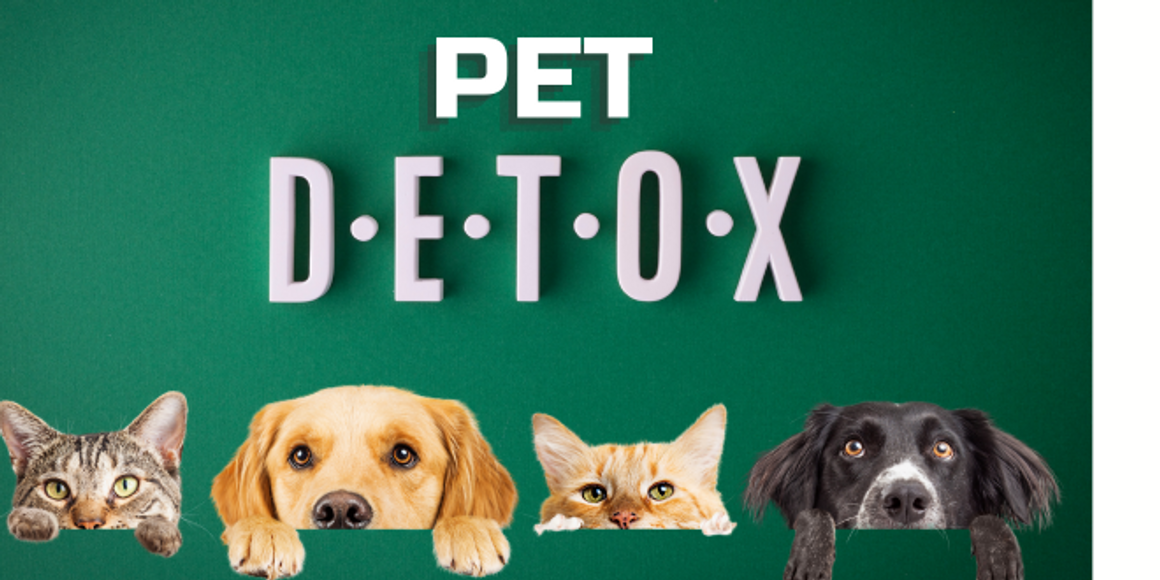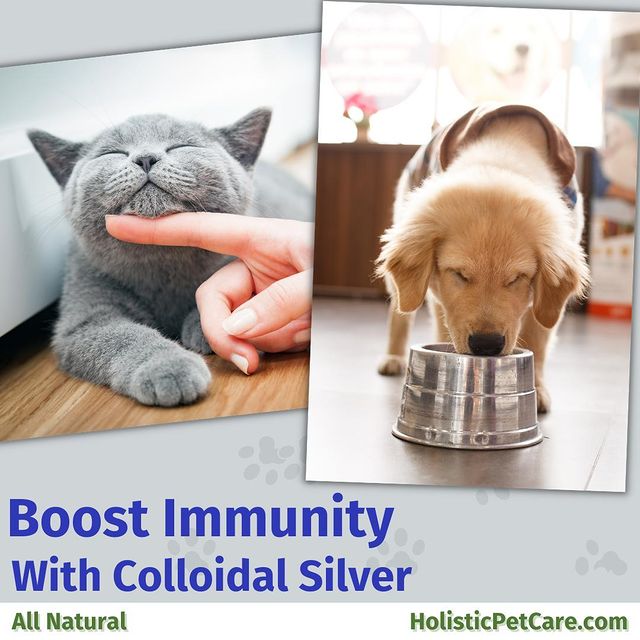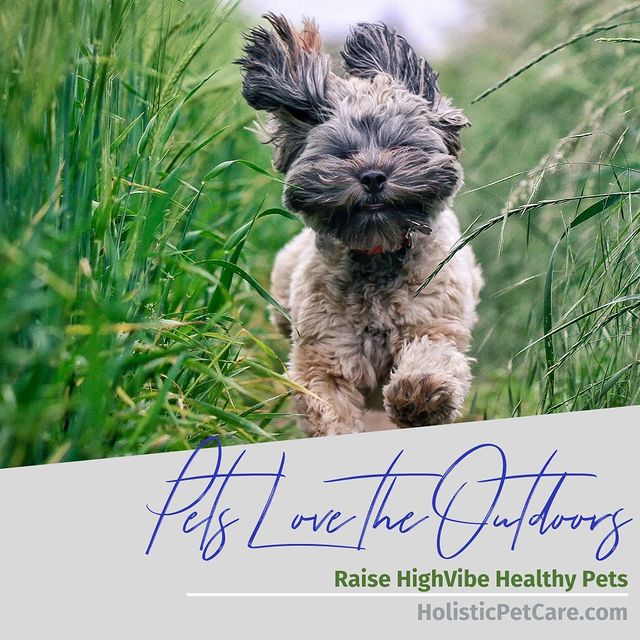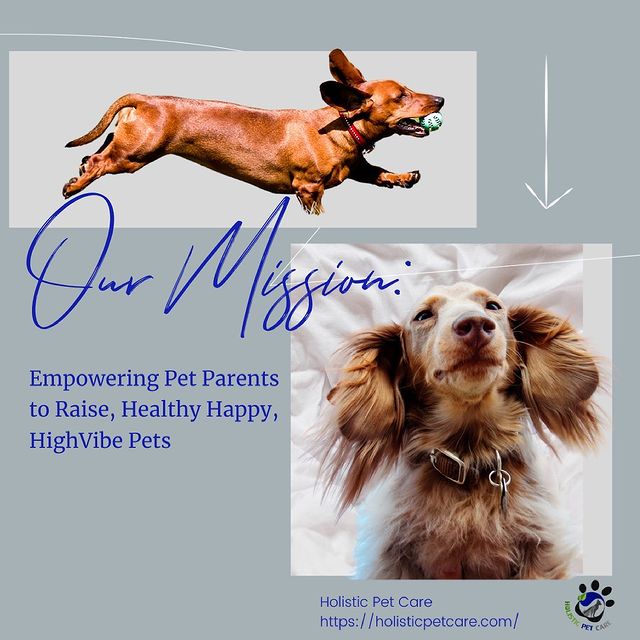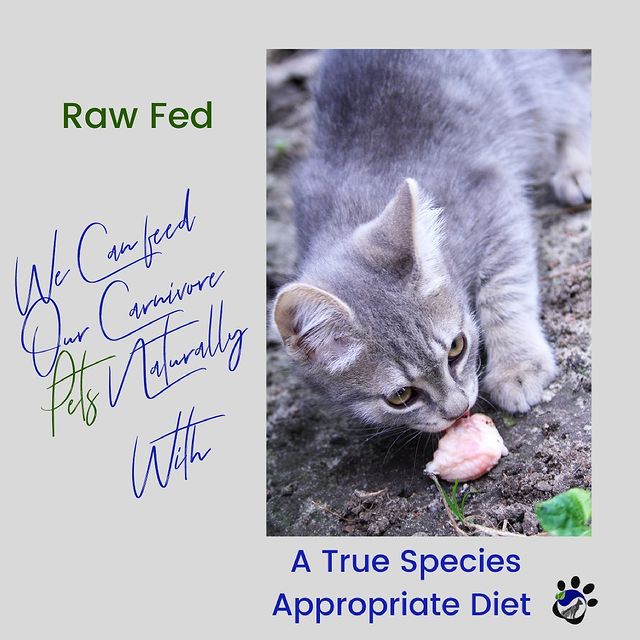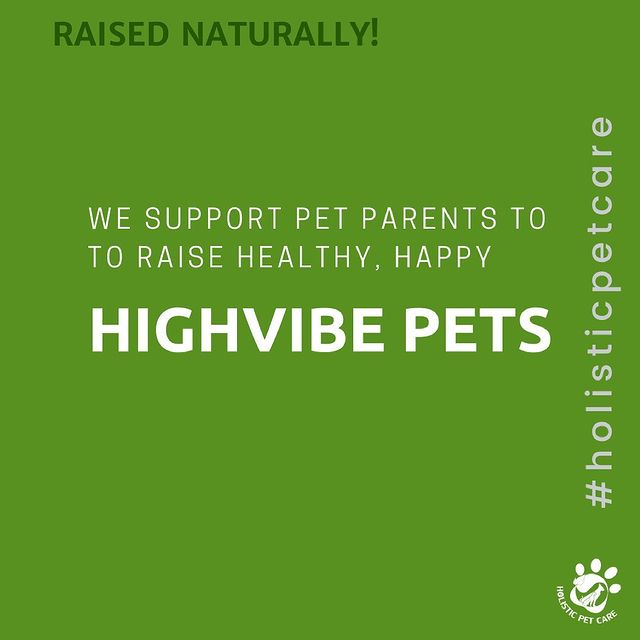Detox for Pets: How It Works and Why You Should Do It
Posted by Jewel on Dec 07, 2023
Toxins are all around us and we can’t escape them. Even our bodies produce toxins as a natural part of digestion, metabolism, and growth.
The important thing is to remove toxins as quickly and efficiently as possible. Like humans, pets come with built-in detox systems such as the liver and the kidneys. However, there’s just so much toxic stuff around us that the body can get overwhelmed. Sometimes we need to help the natural detox system along.
If you allow toxins to accumulate, the resulting toxin overload can stop the body from working properly and cause an imbalance in the animal’s state of health. This can lead to serious conditions, such as allergies, gut issues, and organ failure.
Many natural remedies exist to help us keep our pets healthy and high-vibe. Special intervention is rarely required for detoxification, so the point is to support liver and kidney functions through diet, supplements, and lifestyle changes.
When a serious intervention is needed, however, you need to talk to expert animal naturopaths, holistic or homeopathic Vets for help. But first, let’s understand how detox works.
What Is Detoxification?
Detoxification is the natural process of eliminating toxins from the body. Whether it’s a human or animal body, there are usually four processes involved:
- Exhalation (breathing out), which removes carbon dioxide and other toxic gases
- Sweating, which is limited in dogs and cats and has to be compensated for through other processes
- Urination, which is dependent on the liver and kidneys to filter out toxins from the blood
- Defecation, which eliminates toxins from the liver and the digestive system
The liver is arguably the most important organ involved in detoxification. It helps remove everything from heavy metals to chemical toxins and byproducts of metabolism. Everything your pet eats or drinks is likely to contain something harmful if you’re not careful, and it’s up to the liver to eliminate it.
The liver does this difficult job in several complex stages. It converts harmful chemicals into less harmful ones, destroys any invasive bacteria, and eliminates them in bile, sweat, and urine.
Some of these compounds are stored for future elimination. For example, metals like zinc and copper, as well as heavy metals like mercury and lead, may be stored in fatty tissue. When the amounts of these substances is excessively high, it can lead to disease. That’s why consistently feeding your pet “fortified” commercial kibble filled with additives may be harmful.
The Kidneys
The kidneys are a blood filtration system and make up the second most important detoxification system in animals. The liver often returns water-soluble toxins into the bloodstream for the kidneys to filter out. They also filter out excess electrolytes, water, acids, and anything else the body no longer needs.
Here’s the thing: the kidneys and the liver need specific nutrients to help them do their job. That includes lots of water, vitamins, as well as some minerals. The most important of these are:
- Vitamins A (carotenes), B2 (riboflavin), B3 (niacin), B6 (pyridoxine), and B12
- Ascorbic acid (vitamin C)
- Vitamin E (tocopherols)
- Folic acid
- Flavonoids
- Glutathione
- Phospholipids
- Branched-chain amino acids
- Minerals like selenium, copper, zinc, manganese, copper
- Glycine
- Taurine
- Glutamine
These and many others are found naturally in food. That’s why a proper diet is so important to help with detoxification.
Ultra-processed commercial kibble doesn’t contain many of these delicate nutrients. In addition, dry kibble often leads to dehydration and impairs the detox process. That’s why it’s so important to feed your pet a natural, raw diet and only supplement it with natural foods and herbs.
Signs that Your Pet Needs Detox
When your pet is suffering from toxic overload, you may not immediately recognize the signs because it looks a lot like a regular disease.
- Skin conditions – the skin becomes scaly, itchy, and dry
- Ear Infections
- Teary eyes and runny noses due to irritated mucous membranes
- Endocrine disease, with symptoms like wasting of the muscles, stiff gait, hair loss, and a dry, brittle coat
- Organ failure, which can be fatal if nothing is done
- Unexplained bad breath
- Diarrhea and loose stools
- Lethargy and lack of energy
One common detoxing purge can occur when you switch your pet over to a raw diet. The body suddenly tries to adjust to the new, healthier diet and eliminate all the accumulated toxins from commercial kibble. The pet may suffer from temporary diarrhea, vomiting, and bloating. These symptoms quickly pass when the animal finishes adjusting.
Detoxification is a continuous process. The liver, kidneys, intestines, skin, and other organs involved continuously eliminate toxins from the body, so your pet doesn’t require any special detox session unless they’re already unwell.
How to Detox Pets Naturally
There are many things you should do to support and promote the natural detox process. First, you must take care to reduce the amount of toxins your pet takes in so that you don’t overload their systems. That includes monitoring your pet’s diet, environment, and overall health.
We recommend giving daily doses of colloidal silver to help flush out any low lying pathogens as well and help with the detox.
Also, you should feed your carnivore pet a species appropriate raw diet that includes all the water, antioxidants, enzymes, vitamins, and minerals their bodies need to eliminate toxins.
A Raw Diet Cleans Up the Gut
Commercial kibble is full of toxic ingredients like additives, fillers, and indigestible ingredients. They are the biggest contributor to toxic overload. If you’re still feeding your dog commercial kibble or treats, it’s time to stop. There’s no way around it.
Additionally, a raw diet helps pets maintain a healthy weight. This is important because many toxins are fat-soluble are stay locked up on body fat. Obese animals are more likely to have accumulated toxins, which is harmful.
Stick to a raw diet and make it as high quality as you can afford. At the minimum, you can stick to freeze-dried or dehydrated raw foods. Be sure to supplement with a probiotic to help support gut health.
Plenty of Clean, Purified or Distilled Water
Water helps to flush out toxins from your pet’s body. However, a lot of the water our pets drink today also contains chemicals like chlorine, fluorides, and contaminants like heavy metals. If you don’t have access to making your own distilled water, make sure your pet drinks filtered water in a stainless steel, ceramic or Pyrex (glass bowl).
Fasting
Fasting your pet one day a week can have massive benefits when it comes to detoxification. Just like in humans, intermittent fasting optimizes the body’s metabolism and gives the digestive system time to reset.
Remember that in the wild, your dog or cat wouldn’t eat three regular meals every day. They most likely would eat a large meal every few days, and that’s the way their bodies have evolved.
During the fasting period, give your pet enough clean water and you can give some bone broth. You also give them some larger bones to chew on to keep them busy till the next meal.
Herbal Supplements to Promote Detoxification
There are numerous herbal supplements you can use to help promote liver and kidney function. You can research more about how each of these can be used.
- Milk thistle
- Sulforaphane
- Parsley
- Dandelion root
- Burdock root
- Licorice
- Oregon grape root
- Yellow dock
- Cranberry
- Corn silk
- Marshmallow
- Curcumin
- Colostrum
- Medicinal mushrooms
- Red clover
- Cleavers
- Chlorella with cilantro
- Garlic
- Turmeric
In particular, I’d like to note that turmeric, milk thistle, and sulforaphane are particularly useful at cleaning up the gut and improving liver function.
Detox the Environment
Harmful chemicals show up in the most unexpected of places. It’s worth taking time to check for any sources of chemical pollutants in your home and immediate environment for your good and that of your fur babies. These include:
- Commercial air fresheners
- Smoking and traffic pollution
- New synthetic furniture, carpets, drapes, etc, which can off-gas and release toxic fumes
- Pesticides and herbicides, such as those used in lawn care. Grow wheatgrass or add organic sunflower sprouts to reduce your pet’s need to forage and use natural lawn care at home
- Consider investing in an air purifier
- Shampoos and soaps, which contain chemicals like phthalates
There are usually organic, natural substitutes for many of these commercial products that you can use to reduce exposure to toxins.
Exercise
Sweating is one of the main ways toxins get eliminated. Make sure your pets get a good workout now and then, which helps improve circulation. Bowel function works up the body at a cellular level to get toxins and cellular waste products moving.
Detox the Skin
It’s important to let your pet’s coat breathe. Regular brushing helps to remove dead skin and hair, while regular baths in fresh, clean water remove any allergens and chemicals that stick to their coats.
Be careful about the use of shampoos. Use only natural, non-toxic products and conditioners on your pet, and only sparingly. Bathing your pet too frequently can remove the important oils that help protect their coat and skin.
Minimize Pharmaceuticals
In addition to food, the second most common way chemicals get inside your pet is through pharmaceutical drugs. Unnecessary antibiotics, steroids, NSAIDs, and vaccines quickly overload the body’s detox systems and cause all sorts of problems.
Remember that gut health is one of the most important parts of the body’s immune and detox systems. Do give a good probiotic. We recommend the one from The Pet Health and Nutrition Center.Do not accept any pharmaceutical drug treatment for your pet unless the vet can prove that it’s really necessary for treatment and healing. Even then, use the drugs only for the time required.
The same goes for drugs and products used in deworming and killing parasites. Don’t use them unless it is the last resort.
Get Help With Pet Detoxification
There are lots of misconceptions about detoxification. The truth is, there’s no mystery about this natural process. All pet parents need to do is prevent toxin intake and promote liver and kidney function. ALthough we do not offer consultations, We do have a list on our contact page of how to find a Holistic vet in your area as well as some other Naturopaths available for paid consultations.
We have several products and supplements that can help your pet live out their life in a healthy, HighVibe way. Find more resources about natural pet care here on our website.

